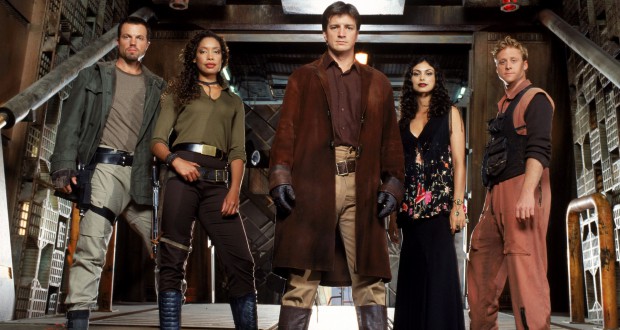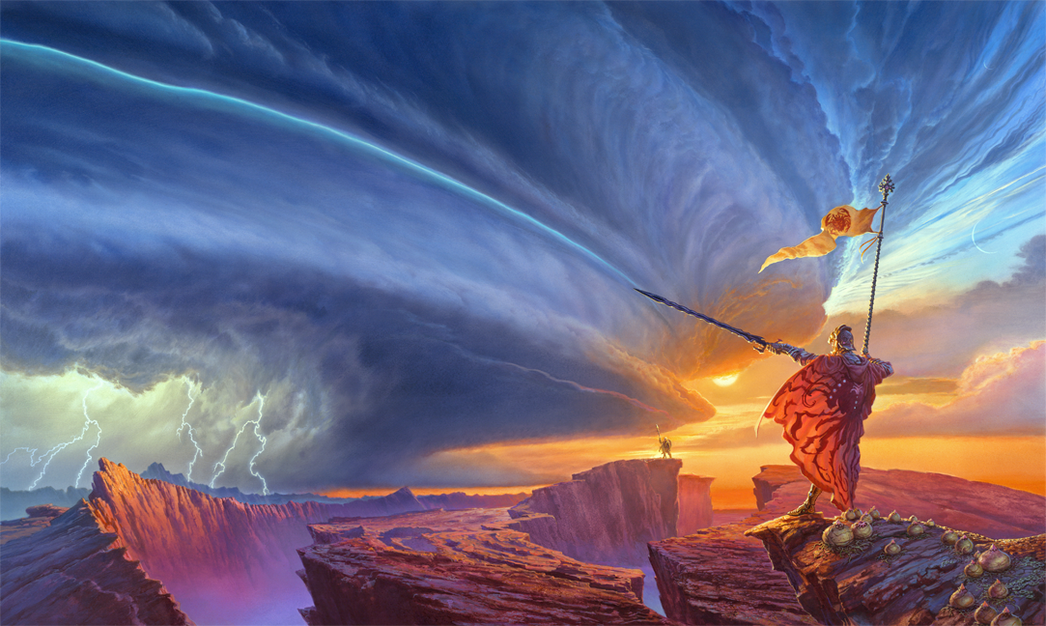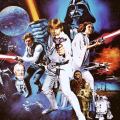Science fiction in general is an awesome genre to mash-up with pretty much any other genre. Actually, I defy you to come up with a scifi genre mash-up that doesn’t work (I realise this is a dangerous game to play. After challenging a friend to think of a disgusting combination of another food and bacon, they suggested bacon and liquorice – yuck!). I’ve already praised the merits of science fiction horror mash-ups, but what about science fiction and Westerns?
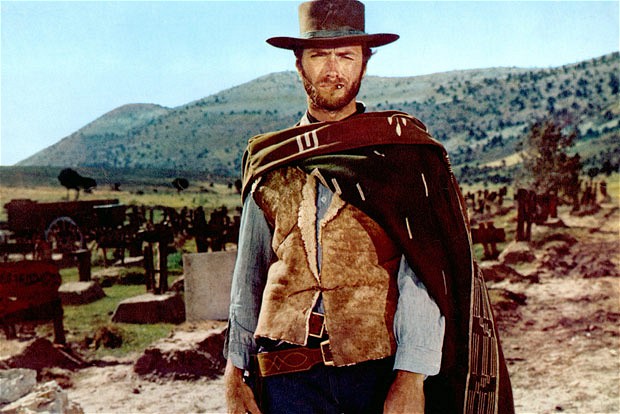 Science fiction stories taking place in a Western setting are nothing new. The 1935 serial film The Phantom Empire featuring a singing cowboy is often cited as the earliest scifi Western, and since then there have been plenty. So many, in fact, that people started to tire of the genre mash-up. It went out of fashion for a long time, until one brilliant fan favourite, Joss Whedon, gave us Firefly.
Science fiction stories taking place in a Western setting are nothing new. The 1935 serial film The Phantom Empire featuring a singing cowboy is often cited as the earliest scifi Western, and since then there have been plenty. So many, in fact, that people started to tire of the genre mash-up. It went out of fashion for a long time, until one brilliant fan favourite, Joss Whedon, gave us Firefly.
What we have to remember is that there are no original stories, only new tellings. When you include tropes from multiple genres in one story, you open yourself, and the story, up to a wide world of possibilities. If you lean heavily on a particular genre as the grounding of the plot, when you throw in tropes from another genre that wouldn’t ordinarily belong, the reader/viewer/consumer is thrown off. It might not be an original idea in storytelling, but mixing those tropes together might be.
But what does make science fiction and Westerns go so well together?
High ideas in a familiar setting
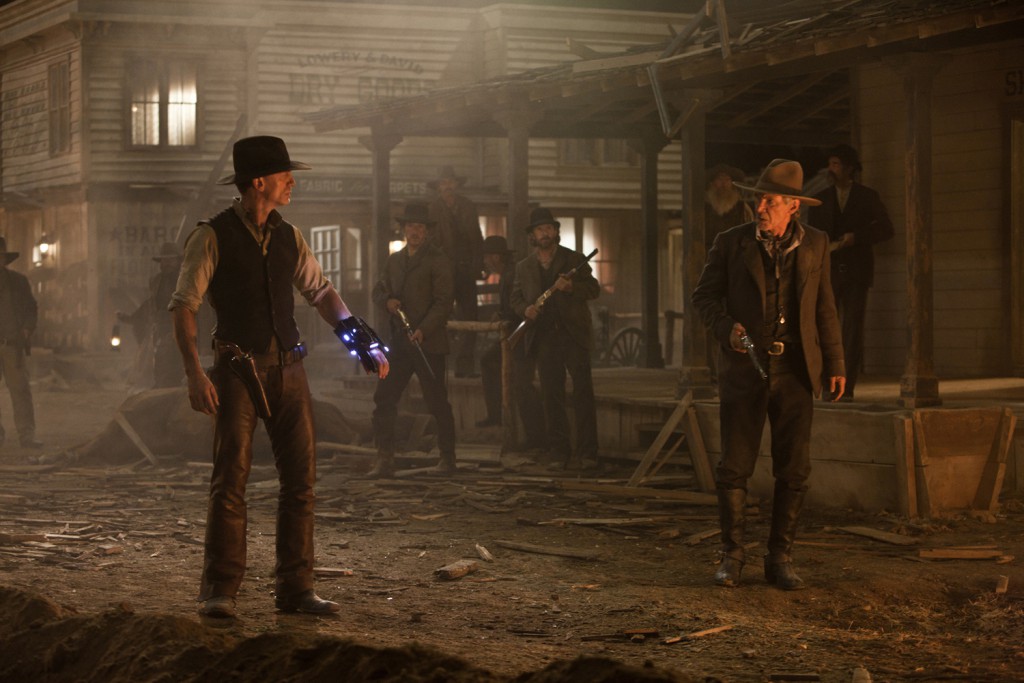 When science fiction works are dismissed as undecipherable and inaccessible, the trouble may not lie with concepts themselves (no matter how far out the high concept scifi is). Instead, the ideas might be fathomable if the consumer was given something familiar from which to gain traction. Think about it: when explaining something new to someone, don’t you often use a metaphor of something they already know to illustrate the point? Using the Western genre to set the scene is one way to anchor the audience in something they know well.
When science fiction works are dismissed as undecipherable and inaccessible, the trouble may not lie with concepts themselves (no matter how far out the high concept scifi is). Instead, the ideas might be fathomable if the consumer was given something familiar from which to gain traction. Think about it: when explaining something new to someone, don’t you often use a metaphor of something they already know to illustrate the point? Using the Western genre to set the scene is one way to anchor the audience in something they know well.
Westerns have a very specific set of rules applied to them. There is a look and feel in a Western that is not captured in any other genre. As soon as any of the visual setting resembles a Western trope, that creative piece of work is (at least in part) a Western. Immediately you give your audience a solid idea of societal structure, ideology, time (though not always, Firefly is a Western set in the future), vocabulary, style of dress, and so on. Westerns give us so many archetypal characters to play with – all of whom are fun, overblown caricatures. There is always some way of subverting these characters in order to introduce a new perspective on an old archetype, common trope, or recycled plot.
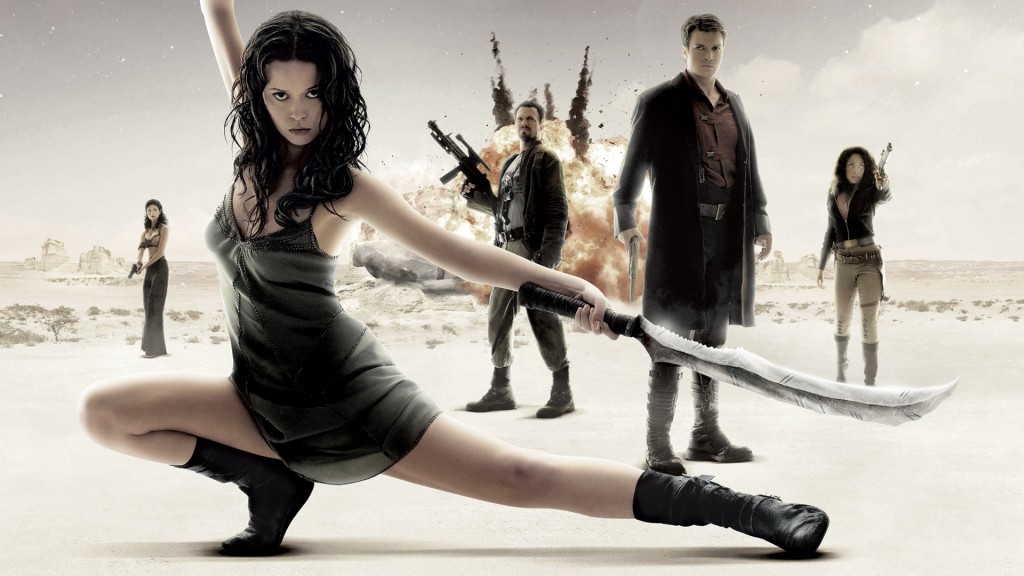 In the language of Western novels or evident in the dialogue of Western films, there is a particular style and flavour. Like noir, the Western vocabulary and delivery style is distinct. By introducing this natural flair deeply embedded within the genre, a science fiction narrative will be immediately brought to life with colour and personality – something that may be desperately needed if you are trying to tackle high concept science fiction.
In the language of Western novels or evident in the dialogue of Western films, there is a particular style and flavour. Like noir, the Western vocabulary and delivery style is distinct. By introducing this natural flair deeply embedded within the genre, a science fiction narrative will be immediately brought to life with colour and personality – something that may be desperately needed if you are trying to tackle high concept science fiction.
If you need an example of this working in action, you don’t need to look too far. Firefly is an excellent example, containing so many tropes from both science fiction and Western genres I’m not sure where to start. If we just stick to the main characters, you can find a healthy helping of Western archetypes alive and well. Mal is a cowboy/gunslinger/drifter, Shepherd Bush is the preacher (obviously), Simon is the City Slicker, Inara the Hooker with a Heart of Gold, and so on. Immediately these characters make sense amongst their fantastical surroundings because they are familiar to us – but they still have enough oomph to their characters to be thoroughly engaging.
The final frontier
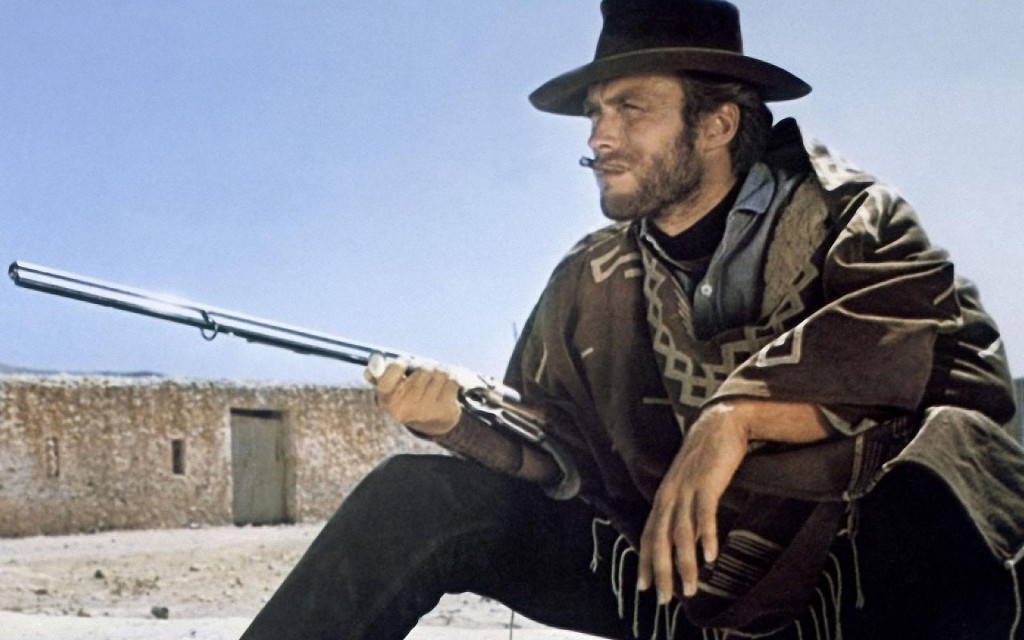 The Western genre is primarily concerned with the time in American history affectionately named the ‘Old West’ or ‘Wild West’. This period began in the early 17th century, as settlers pushed west across the US. The unexplored, untamed wilds of the western parts of the continent were referred to as ‘the frontier’. Tales of this time period have been popular ever since, romanticizing the idea of taming the unknown. It makes sense that we would apply a similar romance to tales preoccupied with space, which everyone knows is the final frontier. We have yet to explore space or tame its wilds, but it is possible. We are all idealistic space cowboys. You sing it, Steve Miller Band.
The Western genre is primarily concerned with the time in American history affectionately named the ‘Old West’ or ‘Wild West’. This period began in the early 17th century, as settlers pushed west across the US. The unexplored, untamed wilds of the western parts of the continent were referred to as ‘the frontier’. Tales of this time period have been popular ever since, romanticizing the idea of taming the unknown. It makes sense that we would apply a similar romance to tales preoccupied with space, which everyone knows is the final frontier. We have yet to explore space or tame its wilds, but it is possible. We are all idealistic space cowboys. You sing it, Steve Miller Band.
Part of the fascination with the frontier is the potential for lawlessness. This isn’t hard to imagine. For instance, with the invention of the Internet came a host of issues around the law. Whose law applies when content is hosted in one place and accessible everywhere? And what about when we go further than any current government reaches? What then? Some of the most obvious conclusions lead us down the road of OTT optimism or all-consuming pessimism. But all of them lead us to completely un-navigated territories – and isn’t that just supremely fascinating?
Westerns themselves are well and truly back in favour. From the brilliant Unforgiven to the remake of Tru Grit, from cult TV series Firefly to the success of the recently published Nunslinger, it’s clear that there is an audience for tough characters in a harsh environment. HBO seems to agree, having ordered a full season of a Westworld remake featuring Anthony Hopkins and Ed Harris.
All I can say is bring on the scifi Westerns! I can’t get enough.
 Pop Verse Pop Culture Universe
Pop Verse Pop Culture Universe
